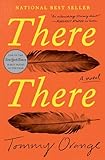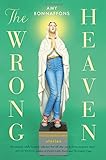2018 has been—for us all, I think—a year full of fear and alarm. For that reason, it was also a year in which my reading habits changed. I’ve been reading compulsively, not only for curiosity and solace but also for distraction. Overwhelmed by the news, I’ve been reading less nonfiction than I usually do. And because this is the year my first novel came out, I’ve also been keeping a closer watch on contemporary fiction. What I’ve come to realize in 2018, more than any other year, is that books really can provide relief (and in some cases, answers). Here are the ones that—through some combination of truth, beauty, and intrigue—have made my life richer.


 In January, Chloe Benjamin’s The Immortalists was released. The first time I encountered it, I read for a few hours straight, standing upright in a stranger’s kitchen. The book is so good I’d forgotten where I was. Soon after, I read Leni Zumas’s Red Clocks, which is my favorite feminist read of the year. It was frightening and empowering, and I wanted to talk about with everyone I knew. In the spring, I finished reading the story collection Elegy on Kinderklavier by Arna Bontemps Hemenway, about memory, identity, and war. I read it over a few months because each word is perfectly chosen, the emotional weight in each story perfectly calibrated. I also read The Friend by Sigrid Nunez, which hit me harder than a book has in a very long time. It made me think more deeply, first about what it means to be a writer, and second, about what it means to be a writer working right now.
In January, Chloe Benjamin’s The Immortalists was released. The first time I encountered it, I read for a few hours straight, standing upright in a stranger’s kitchen. The book is so good I’d forgotten where I was. Soon after, I read Leni Zumas’s Red Clocks, which is my favorite feminist read of the year. It was frightening and empowering, and I wanted to talk about with everyone I knew. In the spring, I finished reading the story collection Elegy on Kinderklavier by Arna Bontemps Hemenway, about memory, identity, and war. I read it over a few months because each word is perfectly chosen, the emotional weight in each story perfectly calibrated. I also read The Friend by Sigrid Nunez, which hit me harder than a book has in a very long time. It made me think more deeply, first about what it means to be a writer, and second, about what it means to be a writer working right now.


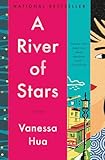
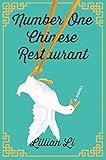





This summer, something wonderful happened. What seems like a decade’s worth of fiction by Asian-American women was published all at once. Of those I read, I savored each one. The Incendiaries by R.O. Kwon is a lyrical feast. If You Leave Me by Crystal Hana Kim introduced me to Haemi, one of my favorite characters in all of literature. A River of Stars, by Vanessa Hua, is a page-turning, heart-filling novel about two immigrant women on the run with their newborn children. In Number One Chinese Restaurant, Lillian Li writes about community and love in a poignant, unforgettable way. What a range of worlds spanning time and space, what a wealth of talent! I am waiting for the opportunity to dive into The Ensemble by Aja Gabel, Bury What We Cannot Take by Kirsten Chen, Severance by Ling Ma, and All You Can Ever Know by Nicole Chung. The floodgates have opened for Asian-American stories, and I have a feeling they’re going to stay open. Next year, Susie Yang is publishing White Ivy, a novel remarkable in both scope and substance. Ocean Vuong’s highly anticipated debut novel, On Earth We’re Briefly Gorgeous, also hits shelves in 2019.
In the fall, I read Jamel Brinkley’s A Lucky Man and Tommy Orange’s There There, which were both urgent and moving. That Kind of Mother by Rumaan Alam is the smartest work of fiction I read in 2018. It’s a gorgeously written, complex, and unsettling book about motherhood and white privilege. I also want to talk about Asymmetry by Lisa Halliday, which is the most inventive and inspired book I’ve read this year. I loved it almost as much as Amy Bonnaffons’s hilarious and striking collection The Wrong Heaven, which sent me back to the blank page, wanting to play with form.
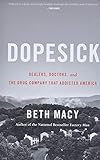
The best non-fiction book I read this year was by Beth Macy. Dopesick: Dealers, Doctors, and the Drug Company That Addicted America is a heart-wrenching and necessary look at the opioid crisis in America. Read this book and you may find yourself starting to understand our country in surprising ways, as I did.



The best mystery/thriller I read this year is a tie between The Perfect Nanny by Leslie Slimani and Then She Was Gone by Lisa Jewell. The former is a true literary thriller, psychologically disturbing and very well written. The latter is a book about a kidnapped dead girl. I’m generally through with stories about kidnapped dead girls, but I read this book upon recommendation, and I’m glad I did. It had me petrified, not only of the characters, but of my own theories about the novel’s resolution. Elegantly constructed and cleanly written, it’s well worth your time. I’ve also been enjoying 2018’s Best American Mystery Stories, edited by Louise Penny. T.C. Boyle has a story in there called “The Designee,” which is both suspenseful and heartbreaking.


I can’t forget to mention my brief obsession with the Japanese writer Hiromi Kawakami. Strange Weather in Tokyo, translated by Allison Markwell Powell, is a soul book for me. It gets at loneliness in a way I haven’t read in a long time. Xiaolu Guo is another writer I read this year whom I deeply admire. A Concise Chinese-English Dictionary for Lovers is a raw and often uncomfortable consideration of language and alienation. It spoke to the part of me that feels at home in neither America nor China.
I’ve been reading, but I’ve been listening, too. This year, I moved to Madison for a fellowship at the Wisconsin Institute for Creative Writing and became part of a community of emerging writers. We gather to read our work out loud. Hearing these authors’ poems and stories spoken in their own voices has given me life and sent me back to the writing desk with my head bowed and fire in my chest. Read this poem and essayby Natasha Oladokun, this poemby Chekwube Danladi, this book by Natalie Eilbert. I’ve had the rare pleasure of hearing Mary Terrier and Kate Wisel read from their novels-in-progress. These novels are very different from each other but both are devastating and bold, and already so sharp in their manuscript forms that I know they’ll take your heads off as soon as they’re published. Next September, we’ll be treated to Aria Aber’s first book of poetry, titled Nearby Is the Country They Call Life, which cannot arrive soon enough. And Emily Shetler’s fiction is as inviting and layered as the lives of the people in her stories.

Here’s a weird thing: I’ve also been reading me. In 2017, as I was going through my novel draft after draft with a red pen, begging tiny changes from my copyeditor at the very last minute, I thought to myself, In 2018 I’ll never have to read this novel again! That turned out to be the opposite of true. But I’ve come to find that I enjoy giving readings, where I can offer my characters a physical voice and a body to occupy in a specific time and place. It’s become clear to me how powerful it is to hear a human voice behind a narrative. As a person of color, it feels not dissimilar to finally seeing faces like mine on TV and in theaters as we play roles we’ve written or originated—something we’ve gotten to see much more of this year. Suffice it to say, I’ve begun to appreciate reading as an art form. 2018 is also the year in which I’ve embraced audiobooks—though of course, nothing will replace the sight and feel of a physical book in my hands. Currently, I’m listening to A Man Called Ove by Fredrick Backman, which is the only reason I know how to pronounce the name“Ove” (ooh-vuh).
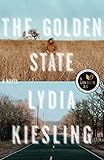
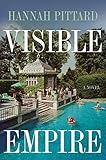
What else have I been reading? Strong undergraduate writing from the students at the University of Wisconsin-Madison. The empathy and curiosity in my students’ fiction gives me hope not only for the state of literature but also for the state of our nation. In class, they want to discuss: Who has the right to tell this story? What are the implications of writing from first person point of view? What place does fiction have in politics, and politics in fiction? I don’t have all the answers, but together, we’re making study of it. This semester, we’ve been reading work by Danielle Evans, Justin Torres, Lorrie Moore, Jamel Brinkley, and Joann Beard.
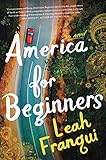

Because it’s still November as I’m writing this, and because there’s not much else to do in the winter time in Madison besides drink, and in some cases, drive your car out onto the iced-over lake—neither of which I’m particularly good at—I’m going to end with a list of books I hope to read before the year is over. All come highly recommended: The Golden State by Lydia Kiesling, Visible Empire by Hannah Pittard, America for Beginners by Leah Franqui, and The Fruit of the Drunken Tree by Ingrid Rojas Contreras.
More from A Year in Reading 2018
Don’t miss: A Year in Reading 2017, 2016, 2015, 2014, 2013, 2012, 2011, 2010, 2009, 2008, 2007, 2006, 2005


